Understanding Air Conditioning (AC) Specific Types and Their Uses
Air conditioning systems are essential for maintaining comfort in both residential and commercial spaces. Understanding the specific types of air conditioning (AC) units can help you choose the right one for your needs. Each type has its unique features, advantages, and specific applications. Below, we explore the main types of AC systems, their uses, and what makes them distinct.
Window Air Conditioners
Window air conditioning units are one of the most common types found in homes and small offices. These units are installed in a window opening, utilizing the exterior part to vent hot air while circulating cool air indoors.
- Cost-effective: They are generally less expensive to purchase and install compared to other types.
- Compact design: Their space-saving design makes them suitable for small rooms.
- Energy-efficient: Many modern window units carry high energy-efficiency ratings.
Split Air Conditioners
Split AC systems have two main components: an indoor unit and an outdoor compressor. This design allows for quieter operation inside the home, as the noisy compressor is kept outside.
- Flexible installation: They can be installed in various configurations, making them ideal for homes without windows.
- Multizone cooling: Some systems can cool multiple rooms with one outdoor unit.
- Enhanced efficiency: Split systems typically offer superior energy efficiency over window units.
Central Air Conditioning
Central AC systems are designed to cool larger spaces effectively. They distribute cool air through ductwork, allowing the entire home or office to benefit from a consistent temperature.
- Uniform cooling: Central AC provides even cooling across all rooms, minimizing hot spots.
- Higher capacity: Ideal for larger homes and commercial buildings.
- Increased property value: A central system can be an appealing feature for potential buyers.
Portable Air Conditioners
Portable air conditioners are standalone units that can be moved from room to room. They require no permanent installation, making them a flexible cooling solution.
- Mobility: You can transport them easily, which is great for temporary cooling needs.
- No installation required: Simply plug them in and set them up wherever you need.
- Versatile use: Perfect for apartments, dorms, and office spaces with limited window access.
Hybrid Air Conditioners
Hybrid systems combine traditional air conditioning methods with advanced technology. They often use both electric and gas power to maximize efficiency.
- Energy savings: These units can save on energy costs by switching between power sources based on efficiency needs.
- Sustainability: Using natural gas can reduce the carbon footprint.
- Year-round comfort: Many systems also provide heat, making them usable in all seasons.
Ductless Mini-Split Systems
Ductless mini-split ACs are similar to split systems but do not require ductwork. They are ideal for older homes or spaces where installing ductwork is impractical.
- Energy-efficient: They allow for targeted cooling, reducing energy waste.
- Easy installation: Installation involves a small hole for the connecting line set.
- Individual temperature control: Each room can be set to a different temperature for personalized comfort.
Factors to Consider When Choosing an AC System
When deciding on an AC system, consider the following factors:
| Factor | Considerations |
|---|---|
| Room Size | Choose a unit with the right BTU rating for the space. |
| Energy Efficiency | Look for units with high SEER ratings for lower energy bills. |
| Installation | Consider whether permanent installation is feasible for your living space. |
| Budget | Balance initial costs with long-term energy savings. |
Selecting the right air conditioning system involves understanding the specific types available and evaluating your personal needs. Each type has its advantages, making it crucial to consider factors like room size, energy efficiency, and installation requirements.
For more information on specific AC types and their applications, you can visit Energy Saver and Air Conditioning, Heating & Refrigeration Institute.
The Benefits of Regular AC Maintenance
Air conditioning systems, commonly known as ACs, play a crucial role in maintaining comfort in homes and workplaces, especially during the warmer months. However, many people overlook the importance of regular maintenance for these systems. Taking a proactive approach to AC maintenance not only enhances comfort but also brings a variety of benefits. Here are the key advantages of keeping your air conditioning unit in top condition.
Improved Energy Efficiency
Regular maintenance directly impacts the energy efficiency of your air conditioning system. A well-maintained AC operates more efficiently, meaning it consumes less energy to cool your space. Some critical maintenance tasks include cleaning or replacing air filters, checking refrigerant levels, and ensuring vents are unobstructed. By doing so, you can expect:
- Lower energy bills
- Consistent temperature control
- Less strain on the unit
Longer Lifespan of Your AC Unit
Like any other mechanical system, your air conditioning unit benefits from regular attention and care. Routine checks and maintenance can significantly extend the lifespan of your AC. On average, a well-maintained unit can last 15 years or more, while those neglected may only operate effectively for 10 years or less. By investing in maintenance, you can:
- Save on long-term replacement costs
- Ensure consistent performance over time
Enhanced Air Quality
Did you know that the quality of air inside your home can impact your health? Regular AC maintenance helps improve indoor air quality by reducing dust, allergens, and contaminants circulating in your space. By keeping your filters clean and checking your AC’s ductwork, you can:
- Minimize allergens and pollutants
- Reduce respiratory issues and allergies
- Provide a healthier environment for your family
Fewer Breakdowns
One of the most frustrating experiences is dealing with a malfunctioning AC during a heatwave. Regular maintenance checks help identify potential problems before they escalate into serious breakdowns. This proactive approach minimizes the chances of unexpected repairs, allowing you to:
- Enjoy peace of mind
- Avoid costly emergency repairs
- Keep your home comfortably cool during hot months
Improved System Reliability
In addition to reducing breakdowns, regular AC maintenance ensures that your system operates reliably when you need it most. A technician will inspect key components such as:
- Thermostat calibration
- Condensate drain checks
- Electrical connections and controls
These inspections help maintain optimal operation and prevent surprises on scorching days.
Environmental Benefits
Energy efficiency also has environmental implications. An AC that operates efficiently reduces its carbon footprint by using less energy, consequently lowering greenhouse gas emissions. Maintaining your AC unit contributes to sustainability efforts, allowing you to:
- Help protect the environment
- Promote energy conservation
Professional Expertise
Having a certified HVAC professional handle your AC maintenance is highly valuable. Experienced technicians can diagnose issues that may be unseen to the untrained eye. This expertise ensures that all aspects of your air conditioning system are in good working condition. It’s advisable to engage with well-reviewed service providers.
For more insights into effective AC maintenance, consider visiting Energy.gov and HVAC.com.
Committing to regular AC maintenance is a wise investment for your comfort, health, and pocketbook. By taking proactive steps in the maintenance of your air conditioning system, you not only enhance its performance but also benefit from significant long-term savings. Don’t wait for the heat to set in; schedule an appointment with a professional to ensure your AC is ready to keep you cool all season long.
How to Choose the Right AC System for Your Home
Choosing the right air conditioning (AC) system for your home is essential for comfort and energy efficiency. With various types of AC systems available, understanding your options will help you make an informed decision. Consider the following factors when selecting the best AC system for your needs.
Assess Your Home’s Size
The size of your home plays a significant role in determining the appropriate AC system. To ensure you choose the right unit, measure the square footage of each room that will be cooled. A unit that is too small may struggle to cool your space, leading to inefficiency, while an oversized system can cool your home too quickly, resulting in uncomfortable humidity levels.
Types of AC Systems
Familiarize yourself with the different types of air conditioning systems. Here are some common options:
- Central Air Conditioning: This system uses ductwork to distribute cool air throughout your home. It’s best for larger spaces and provides a consistent temperature.
- Window Units: Ideal for single rooms, these are installed in a window and are easy to set up. They are suitable for small apartments or areas that need occasional cooling.
- Split Systems: Comprising of two units (one inside and one outside), split systems are efficient for homes without ductwork. They allow for individual room control.
- Portable Air Conditioners: These mobile units can be moved from room to room, providing flexibility but may not be as efficient if used continuously.
Energy Efficiency Ratings
When evaluating AC systems, check their energy efficiency ratings. The Seasonal Energy Efficiency Ratio (SEER) measures how efficiently a cooling system operates over a typical cooling season. Generally, higher SEER ratings indicate better energy efficiency.
Here’s a quick look at SEER ratings:
| SEER Rating | Efficiency Level |
|---|---|
| 13-15 | Good |
| 16-20 | Very Good |
| Above 20 | Excellent |
Consider Your Budget
Your budget is a critical factor in your decision. AC systems can vary significantly in price, not just for the unit itself but also for installation and ongoing maintenance. It’s essential to balance your initial investment with your long-term energy costs. Be sure to ask about financing options or potential rebates that may be available in your region.
Installation and Maintenance
Professional installation is vital for your AC system to function efficiently. Improper installation can lead to short lifespans and higher energy bills. Research local companies and check reviews to find reputable contractors. After installation, regular maintenance is crucial. Schedule annual check-ups to ensure your AC system remains in top condition, ensuring efficiency and longevity.
Climate Considerations
Consider the climate in your area. Regions with high humidity levels, for instance, may require a system that effectively manages moisture as well as temperature. Ensure your chosen system can handle the specific needs of your local climate.
Smart Features
Today’s AC systems often come with advanced technology that enhances convenience and energy savings. Look for features such as programmable thermostats, remote control options, and compatibility with smart home systems to maximize your comfort while maintaining efficient energy use.
Before making a final decision, compare several models to find one that matches your home’s unique requirements. Websites like Energy.gov provide valuable tips and resources to help you make an informed choice. Also, consider consulting with HVAC professionals to understand the latest technologies and recommendations for your specific needs.
By taking the time to analyze these factors, you can confidently choose the right air conditioning system that keeps your home comfortable and energy-efficient all year round.
Energy Efficiency and Air Conditioning: Making Smart Choices
Choosing an air conditioning system that is energy-efficient not only benefits the environment but also reduces your utility bills. With rising energy costs and growing concerns about climate change, making smart choices in selecting your air conditioning (AC) unit has never been more critical. Understanding energy efficiency ratings can help you choose a system that meets your needs while saving you money.
Understanding SEER Ratings
Seasonal Energy Efficiency Ratio (SEER) measures the cooling output of an air conditioning unit divided by the energy consumed during the same period. Higher SEER ratings indicate more efficient systems. When shopping for an AC unit, look for a model with a SEER rating of at least 14. Here’s a quick breakdown:
- SEER 13: Basic efficiency level.
- SEER 14-16: Moderate efficiency, suitable for most homes.
- SEER 17+: High efficiency, can lead to significant savings.
Types of Energy-Efficient Air Conditioning Systems
There are various types of air conditioning systems available today that focus on energy efficiency. Here are some popular options:
- Central Air Conditioning: Excellent for cooling large homes and often features higher SEER ratings.
- Ductless Mini-Split Systems: Allows zoning for individual rooms, reducing energy waste.
- Geothermal Heat Pumps: Uses the earth’s temperature to provide heating and cooling, highly efficient in the long term.
- Window Units: Cost-effective for small spaces; select ENERGY STAR certified models for better efficiency.
Smart Features to Consider
Modern air conditioning units come equipped with smart technology that can enhance energy efficiency. Here are features to look for:
- Programmable Thermostats: Helps regulate temperature based on your schedule, saving energy when you’re not home.
- Smart Sensors: Automatically adjusts settings based on occupancy, optimizing energy use.
- Wi-Fi Connectivity: Allows you to control your AC remotely, ensuring you’re not wasting energy.
Proper Installation and Maintenance
No matter how energy-efficient your AC unit is, improper installation can negate these benefits. Here’s how to ensure your system operates at peak efficiency:
- Hire a Qualified Technician: Always use a licensed professional for installation.
- Regular Maintenance: Schedule annual inspections and change filters every few months to prevent blockages.
- Seal Ducts: Ensure that all ducts are properly sealed to avoid energy loss.
Importance of Insulation
Good insulation keeps the cool air in and the hot air out. If your home is not properly insulated, even the most efficient air conditioning system will struggle to maintain comfortable temperatures. Consider the following:
- Check for drafts around windows and doors.
- Insulate your attic and walls to reduce heat gain.
- Use thermal curtains to minimize heat transfer during the summer.
Federal Tax Credits and Rebates
Many homeowners can benefit from federal tax credits and local rebates for installing energy-efficient air conditioning systems. These financial incentives can significantly reduce the initial costs. Do your research to identify:
- Current tax credits available through the ENERGY STAR® website.
- Local and state programs that encourage energy efficiency.
Making smart choices about your air conditioning system can lead to significant energy savings and a smaller carbon footprint. By understanding efficiency ratings, selecting the right system, ensuring proper installation, and maintaining it diligently, you can create a comfortable living environment that is eco-friendly and cost-effective.
For more details on energy-efficient air conditioning solutions, visit Energy Saver for valuable resources and guidance.
Common AC Problems and How to Troubleshoot Them
Air conditioning units play a vital role in keeping your home cool, especially during those sweltering summer months. However, like any appliance, they can run into problems. Understanding common AC issues and how to troubleshoot them can save you time, money, and discomfort. Here’s a guide to help you tackle some frequent air conditioning challenges.
1. AC Won’t Turn On
If your air conditioning unit fails to turn on, it can be frustrating. Here are some steps to check:
- Ensure the thermostat is set correctly and functioning. Is it set to “cool”?
- Check the circuit breaker. A tripped breaker can stop power to the unit.
- Inspect the power supply. Is the unit plugged in securely?
- If your AC has an in-line fuse, check that too.
2. Poor Airflow
When cool air isn’t flowing properly, a few factors could be in play:
- Dirty air filters can block airflow. Regular cleaning or replacement can solve this.
- Blocked ducts may need cleaning or repair. Dust and debris can accumulate over time.
- Check vents in each room. Ensure they aren’t blocked by furniture or other items.
3. AC Is Blowing Warm Air
This issue can stem from various causes:
- The thermostat setting might be incorrect. Confirm it’s on “cool” and the temperature is lower than the room temperature.
- Low refrigerant levels can prevent your AC from cooling the air effectively. This often requires a professional recharge.
- Issues with the compressor can lead to warm air. Inspect the outdoor unit for any visible problems.
4. Strange Noises
Noisy air conditioners can be bothersome. Identify the sound:
- Hissing could indicate a refrigerant leak.
- Buzzing noises might come from electrical issues.
- Gurgling sounds could mean that your AC unit requires maintenance or has a clog.
5. Water Leaking
Water pooling around your AC is not just a nuisance; it can cause damage. Consider these points:
- Check your condensate drain line. A clogged line can lead to excess water buildup.
- Inspect the drain pan for cracks or damage.
- Ensure the refrigerant levels are appropriate. Too much refrigerant can cause icing and lead to leaks.
6. Foul Odors
If you notice unpleasant smells coming from your AC, pay attention:
- Musty odors may indicate mold growth in the system or ducts.
- Burning smells might suggest overheating or an electrical problem. Turn off the unit and consult a technician.
7. Frequent Cycling
When your AC turns on and off too often, it can be annoying and may cause wear and tear:
- Ensure the thermostat is functioning properly and placed away from heat sources.
- Inspect for dirty air filters, which can overly strain your system.
- Consider if your unit is correctly sized for your space. An undersized unit can struggle and cycle frequently.
8. Inefficient Cooling
If your AC doesn’t cool effectively, check the following:
- Examine insulation in your home. Poor insulation can lead to heat gain.
- Seal any gaps or leaks in windows and doors.
- Regular maintenance, including cleaning coils, can ensure efficient operation.
For further guidance on troubleshooting common AC problems, feel free to check out resources like Energy Saver or ASHRAE. Keeping your air conditioning system running smoothly means you can enjoy comfort during those hot days.
Understanding Air Conditioning Installation: What to Expect
Air conditioning installation is a crucial step for ensuring comfort in your home or office, especially during those hot summer months. When you’re considering having an air conditioning (AC) system installed, understanding the process can help set your expectations and make the experience smoother. Here’s a detailed overview of what to expect during AC installation.
Choosing the Right AC Unit
The first step in air conditioning installation begins with selecting the right unit. Factors to consider include:
- Size: The right size of the unit is essential. An air conditioner that is too small won’t effectively cool your space, while one that is too large may cool your area too quickly without removing humidity.
- Type: There are various types of AC units, including central air systems, ductless mini-splits, and window units. Each has its pros and cons, depending on your space and needs.
- Energy Efficiency: Look for units with a high SEER (Seasonal Energy Efficiency Ratio) rating. This will save you money on energy bills in the long run.
The Installation Process
Once you have selected your air conditioning unit, the installation process can begin. Here’s what typically happens during installation:
1. Pre-installation Inspection
Before the installation begins, a technician will conduct a thorough inspection of your space. This includes measuring the area, checking existing ductwork (if applicable), and determining the most efficient location for the new unit.
2. Preparing the Space
To prepare for installation, it’s important to clear the area around where the indoor and outdoor units will be placed. This will give the team easy access and help streamline the process.
3. Installing the Indoor Unit
The indoor unit is usually mounted on a wall or ceiling. The technician will secure it, attach it to the refrigerant lines and drain piping, and install the thermostat.
4. Installing the Outdoor Unit
The outdoor unit will then be installed in a location that allows for proper airflow. It’s usually placed on a concrete slab or mounted on brackets if it’s a wall-hanging unit. The technician will connect power and refrigerant lines between the outdoor and indoor units.
5. Final Setup and Testing
Once both units are installed, the technician will ensure everything works correctly. They’ll check for refrigerant leaks, test the unit’s cooling capabilities, and show you how to operate your new system efficiently.
Post-Installation Tips
After your air conditioning unit is installed, keep these tips in mind:
- Regular Maintenance: Schedule regular maintenance to keep your AC running efficiently. This usually involves changing filters, cleaning the coils, and checking for leaks.
- Be Aware of Energy Usage: Monitor your energy bills to see how your new unit affects your consumption.
- Understand Usage Settings: Familiarize yourself with the settings on your thermostat for optimal comfort and efficiency.
Choosing a Reliable Installer
Selecting an experienced installer is crucial. You want a service that is licensed, insured, and has a good reputation. Always look for:
- Read reviews and ratings on services.
- Ask for referrals from friends or family.
- Get multiple quotes to ensure a fair price.
For more information about air conditioning installation and maintenance, check out resources available on websites like Energy Star or HVAC.com.
By understanding what to expect during air conditioning installation, you can ensure a more efficient and comfortable setup for your cooling needs. Proper preparation and informed choices will not only provide you with comfort but can also enhance energy efficiency, allowing you to enjoy your space year-round.
| AC Type | Pros | Cons |
|---|---|---|
| Central AC | Efficient for large homes, quiet | More expensive to install, requires ductwork |
| Ductless Mini-Split | Flexible, energy-efficient, no ductwork needed | Higher upfront cost |
| Window Units | Inexpensive, easy to install | Less efficient, can be noisy |
Air conditioning installation may seem daunting, but with the right knowledge and a good technician, it can be a straightforward process that greatly enhances your comfort at home or work.
The Future of Air Conditioning Technology and Innovations
As our world continues to evolve, the demand for advanced air conditioning (AC) technology grows. This demand is driven not only by the need for comfort but also by the need for energy efficiency and sustainability. Innovations in this field have the potential to transform how we perceive climate control in our homes, offices, and vehicles.
Smart Air Conditioning Systems
One of the most significant advancements in air conditioning technology is the rise of smart AC systems. These units utilize the Internet of Things (IoT) to enhance user experience and reduce energy consumption. Key features include:
- Remote Control: Users can adjust their AC settings from anywhere using a smartphone app.
- Energy Monitoring: Smart systems provide real-time data on energy usage, helping users to make informed decisions.
- Learning Algorithms: Some units can learn your habits and adjust themselves automatically to conserve energy.
Environmentally Friendly Refrigerants
The traditional refrigerants used in air conditioning units have been under scrutiny due to their environmental impact. The future of AC technology will likely see an increase in the use of eco-friendly refrigerants such as:
- Hydrofluoroolefins (HFOs): These have a low global warming potential and are gaining popularity.
- Carbon Dioxide (CO2): An abundant natural refrigerant that does not harm the ozone layer.
- Hydrocarbons: Such as propane and isobutane, which are efficient and environmentally friendly alternatives.
Energy-Efficient Technology
Energy efficiency is a central theme in the future of air conditioning. Innovations are pushing the bounds of what’s possible when it comes to saving energy while providing effective cooling solutions. Look out for:
- Inverter Technology: This adjusts the compressor speed to maintain the desired temperature without wasting energy.
- Variable Refrigerant Flow (VRF): Allows multiple indoor units to be connected to a single outdoor unit, optimizing performance and control under varying conditions.
- Smart Thermostats: These devices improve AC efficiency by learning user preferences and automatically adjusting temperature settings accordingly.
Integration with Renewable Energy
As the push for renewable energy sources intensifies, air conditioning technology is also evolving. More systems will be designed to work seamlessly with solar panels and wind energy, which can enhance sustainability. Here are some connections between AC systems and renewable energies:
- Solar-Powered AC Units: Units that can directly harness solar energy for operation, lowering electricity costs.
- Energy Storage Solutions: Systems that store energy generated from renewable sources for later use in air conditioning, providing flexibility and stability.
Improved Indoor Air Quality
As we recognize the importance of indoor air quality, AC systems are integrating advanced filtration technologies. Future innovations include:
- HEPA Filters: High-efficiency particulate air filters that can trap smaller particles, improving air quality inside homes.
- UV-C Light Technology: Used to kill germs and mold in the air conditioner, promoting cleaner air.
- Air Purification Systems: Integrated air purifiers that work in conjunction with AC units to remove pollutants and allergens.
| Technology | Benefit |
|---|---|
| Smart Thermostats | Optimize energy use through learning algorithms. |
| Eco-Friendly Refrigerants | Reduce environmental impact and enhance safety. |
| Energy-Efficient Units | Lower energy costs while maintaining comfort. |
The air conditioning industry is poised for exciting changes. Adopting smart technology, eco-friendly materials, and innovative energy solutions will not only improve your comfort at home but also contribute to a sustainable future. As you consider upgrading or replacing your current unit, keep an eye on these advancements. For more detailed information, you can visit resources like Energy Saver, or check out ACHR News for industry insights.
By embracing modern air conditioning options, you will be contributing to a greener planet while enjoying the comfort of a well-controlled environment.
Key Takeaway:
Air conditioning (AC) systems are more than just luxury items; they are essential for maintaining comfort in our homes, especially during hot weather. Understanding the various Air Conditioning (AC) Specific types—such as central air conditioning, ductless mini-splits, and window units—is crucial for making informed decisions about your cooling needs. Each type has unique advantages tailored to specific environments, so knowing your options ensures that you select the right system for your home’s layout and your budget.
Regular maintenance of your AC system cannot be overstated. It not only prolongs the lifespan of the unit but also helps in preventing costly repairs down the line. Routine checks on filters, coils, and refrigerant levels keep your AC running smoothly, and ensure it operates at peak efficiency.
Choosing the right AC system involves evaluating several factors such as the size of your home, insulation quality, and local climate. It’s essential to factor in the system’s energy efficiency ratings, as energy-efficient models can result in significant savings on electric bills. Researching energy-efficient options and understanding their long-term benefits can dramatically impact your overall comfort and expenses.
Despite the benefits, homeowners may encounter common AC problems such as inconsistent cooling, strange noises, or increased energy bills. Knowing how to troubleshoot these issues can save time and reduce stress during peak usage times. Simple checks, like cleaning or replacing filters and inspecting the thermostat settings, can often resolve minor problems before they escalate.
When it comes to installation, it’s beneficial to know what to expect throughout the process, including the timeframe, the costs involved, and any necessary modifications to your home. Hiring experienced professionals ensures a proper setup, maximizing your AC’s performance.
The future of air conditioning lies in innovative technologies that promise even better energy efficiency and smarter operation. Staying updated with these advancements can help you make informed decisions about upgrading your system when the time comes, ensuring that your indoor comfort aligns with the latest standards in energy sustainability.
Understanding your AC options, committing to regular maintenance, choosing the right system, troubleshooting common issues, properly managing installations, and keeping an eye on future technologies will ultimately help you create a comfortable and energy-efficient home environment.
Conclusion
As you navigate the world of air conditioning, understanding the specific types, their uses, and benefits becomes essential for making informed decisions. Regular maintenance is not just a good practice; it’s vital for prolonging the life of your AC system and ensuring optimal performance. When choosing the right air conditioning system for your home, consider factors like size, energy efficiency, and capacity.
Energy-efficient models not only lower your utility bills, but they also contribute to a more sustainable environment. By being aware of common AC problems and learning how to troubleshoot them, you can save money and avoid unnecessary service calls. Installation is another critical aspect; knowing what to expect helps you prepare for the process and choose reliable professionals to handle the setup.
Looking forward, the air conditioning industry is on the brink of exciting innovations that promise smarter, more efficient systems tailored to your comfort needs. Staying informed about these trends can empower you to make choices that enhance both your comfort and your home’s energy efficiency. Embracing the future of AC technology ensures you’ll enjoy advanced features for a long time to come. Whether it’s understanding specific types, performing regular maintenance, troubleshooting issues, or following trends, your commitment to effective air conditioning will ensure a comfortable, efficient indoor environment for years ahead.

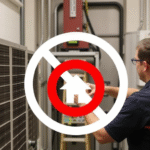
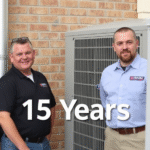
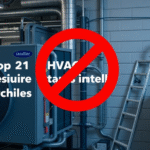
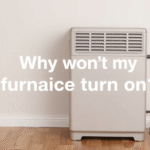
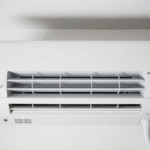
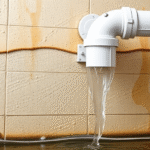
Leave a Reply